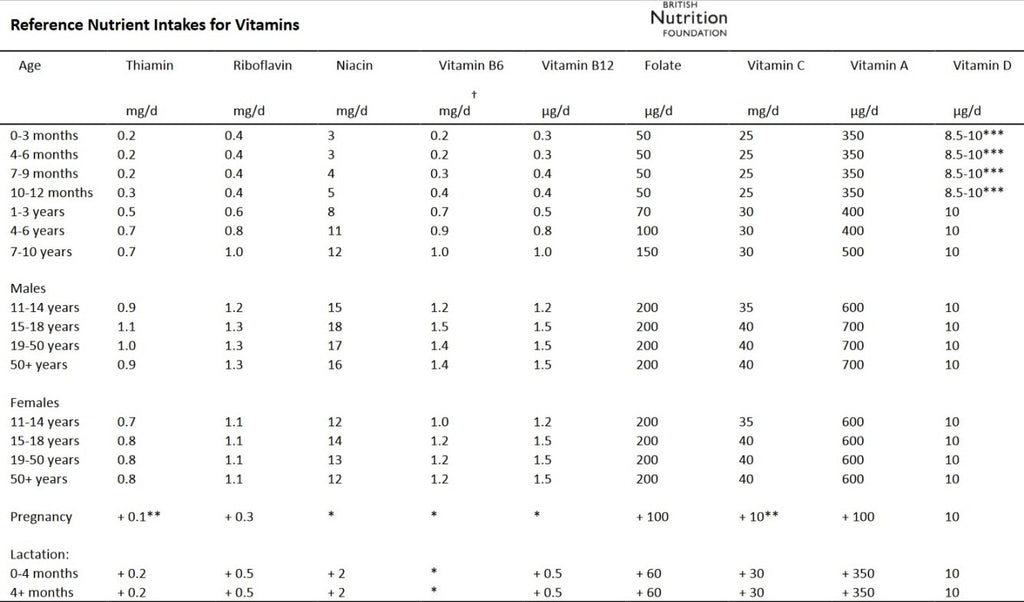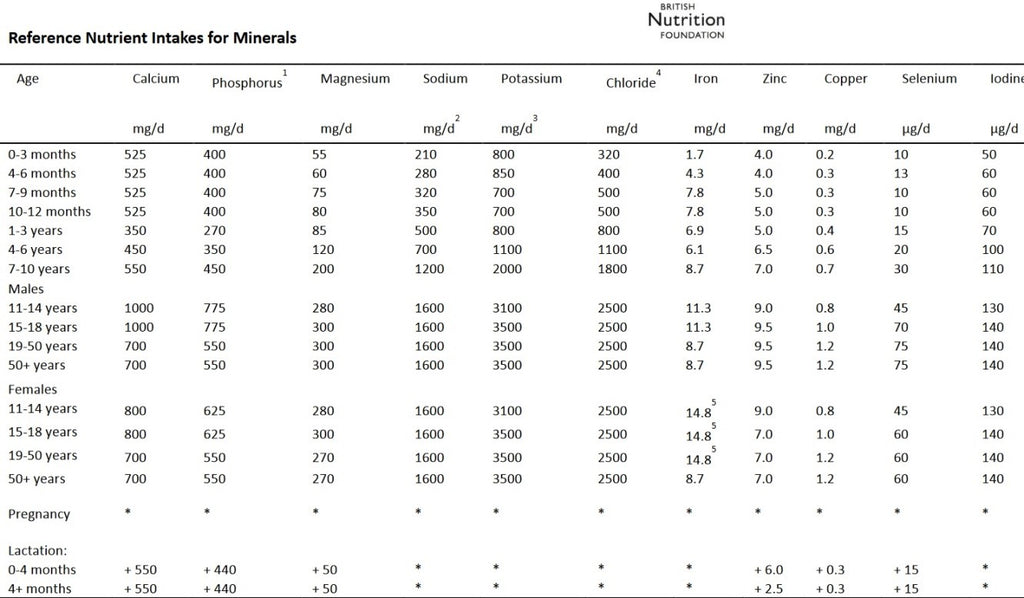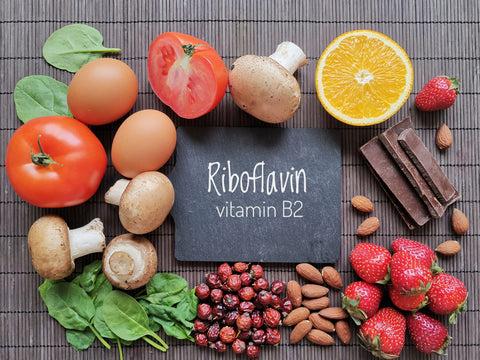Key Health Concerns Affecting Children
Childhood obesity continues to be the number one concern for children in the UK. Rates of childhood obesity have tripled in the last three decades, significantly. At the same time, childhood obesity increases the risk of diabetes, cancer, heart disease, high blood pressure and other serious disorders.
One in eight of British children and young people aged between five and 19, surveyed in 2017, had a mental disorder. Almost one in four girls aged 17 to 19 had a mental disorder and half of them either had self-harmed or attempted suicide.
The same report also concluded that type 1 diabetes is an increasingly common autoimmune condition among children and young people in the UK, which can lead to serious long-term health problems.
Why It Hasn’t Improved?
There has been no improvement in the prevalence of child overweight and obesity over the past decade. Experts predict that more than half of British adults and a quarter of children will be obese by 2050. Also mental health disorders are still on rise among children. According to the report published in May 2019, one in four primary pupils has ‘hidden’ social and mental health difficulties.
Although there are more associated factors, yet the two key causes of childhood obesity and poor mental health are the same as in case of adults. One of them is lack of physical activity as regular exercise is one of the best ways to improve metabolism and levels of antidepressant hormones such as serotonin. Unfortunately, children and young people were found to spend much more time on social media, TV, computer or video games than reading books, playing outside or engaging in extracurricular activities.
Another main cause is poor diet, low in essential nutrients and fibre while high in sugar, white flour products, and bad fats including pro-inflammatory refined commercial oils. Unfortunately, most British school children do not seem to receive proper health education at homes and schools they attend. Studies revealed that they are not taught about proper principles of healthy diet and are far from practicing them. According to one report, only about 1 in 5 British children (aged 5 to 15) consumed at least 5 portions of fruits and vegetables a day. More than 80% consumed refined white bread, chips and crisps, burgers, meat pies and other high fat and calories foods. Unfortunately, in spite of unhealthy eating habits, more than four in five of all children considered their diet as healthy!

Key Nutrients Children Need Due To Common Deficiencies
An estimated 80% people living in the UK (including children) are deficient in vitamin D. Vitamin D is regarded as an exceptionally important health-sustaining factor because it affects thousands of different human genes and cells. It plays critical role in enhancing the immune system function, helps the body absorb minerals that are important for normal development of strong bones, teeth and muscles. It supports normal nervous system function and helps maintain healthy body weight by improving fat metabolism. Together with selenium, zinc and magnesium, vitamin D was also found to help prevent autoimmune diseases, including especially common among children type 1 diabetes.
The next most important nutrient children desperately need due to very common deficiency is magnesium. Magnesium is present in all body cells as they constantly require this mineral for a normal function. Magnesium is so important for preserving the health of children and young people because it is involved in over 600 reactions, including DNA repair, converting food into energy (metabolism & body weight), contracting and relaxing muscles, regulating neurotransmitters and hormones, and hundreds of other health-sustaining functions. Also, serotonin (the strongest antidepressant and feel-good hormone) and glutathione (body’s most powerful antioxidant) require Magnesium for their synthesis.
Researchers suggest that due to soil depletion and other factors, millions of people in the UK (including children) suffer from lack of the trace mineral zinc. Zinc strengthens the child’s immune system by stimulating antibody production and it has proven to be even directly toxic to certain types of viruses. It also speeds up recovery & helps minimise unpleasant signs associated with flu or cold such as runny nose or tiredness. Zinc is present everywhere in the human body and it is required to maintain normal metabolism (body weight), brain and nervous system function, hormonal balance, strong bones & teeth, acid production in the stomach (to ensure normal digestion and assimilation of nutrients), healthy liver, and normal blood sugar levels. It is needed to produce tryptophan and then serotonin which helps children to be happy and regulates their appetite.
Vitamin B12 is absolutely critical to maintain the mental and physical health of children. Its deficiency can be associated with anaemia, poor memory, tiredness, mental fogginess, weak immunity, muscle weakness, sleep & mental problems, nerve damage, and other problems. Unfortunately, due to many different factors, the number of children with low Vitamin B12 levels is constantly growing.
According to Dr. Cees Vermeer a renowned vitamin K expert and researcher, majority of adults and children are deficient in vitamin K. Studies show that even if we have sufficient intake of this vitamin to prevent bleeding disorders, we may have insufficient Vitamin K intake to maintain strong bones and teeth and to prevent osteoporosis, cancer, and dangerous calcification of various organs including arteries (arterial calcification), pineal gland, and joints. However, much more important than K1 is vitamin K2 (found only in some fermented and unpopular in the UK foods such as natto or sauerkraut) as only K2 is able to activate the MGP, a protein that helps direct calcium to the right places (bones) and lead calcium away from the undesirable areas (pineal gland, joints, kidneys and arteries) thus preventing children from developing hypercalcaemia and calcification of these organs.
Of course, children need all other essential vitamins and minerals, including especially all B vitamins, vitamin A, iron, selenium, iodine, or vitamin C, but the four mentioned above nutrients require special attention due to very common deficiencies and extremely important role in maintaining good health and well-being of children.
Most Important Nutritional Considerations For Children
The best nutritional solution to the obesity, poor mental health, and other health issues that are common among children can be found in the promotion of well and balanced unrefined and high in nutrients diet in school and home setting. Children need to consume much more foods that are high in fibre including vegetables, fresh fruits, whole grains, pulses (beans, lentils, chick peas, organic soya products), as well as some seeds and nuts. Research gives evidence that dietary fat intake is much less related to body fat than the overall intake of dietary fibre. It means that diet high in fibre (found only in unrefined plant foods) is more efficient in reducing obesity than a low fat diet.
The benefits of such rich in fibre diet are manifold, because it not only reduces the absorption of fat, but also lowers blood glucose and cholesterol levels, is higher in nutrients, increases number of probiotic bacteria in in the gut, boosts immunity, reduces the risks of cancer, diabetes, and mood problems, and increases satiety, as high fibre foods are digested more slowly.
Therefore, children and young people should be encouraged to be more physically active and increase consumption of unrefined plant-based foods such as vegetables, fruits, legumes, seeds, nuts, and whole grain products.
By consuming more healthy foods they will automatically reduce the intake of animal-based foods, white flour products, white breads, cakes, sweetened beverages and foods which are high in empty calories, refined sugar and bad fat. They should be provided with access to healthy, nutritious and tasty foods, nutritional supplements (especially multivitamins, vitamin D, Magnesium, vitamin B12 and K2), and healthier beverages.
Nutritional Supplements For Children
Unfortunately, due to the fact that for a very long time we’ve been using artificial fertilizers the concentration of minerals in the soil today is 70 to 90 % lower than it was a hundred years ago.
Due to various reports pointing to dangerous soil depletion, the nutritional content in both plant and animal foods is much lower today than it was before we started abusing the soil in many different ways including the heavy use of artificial fertilisers. In addition, majority of children and teenagers consume refined foods (such as white flour products) which are very low in nutrients and often high in sugar which deprive them of vitamins and minerals.
For this reason, apart from increasing consumption of healthier foods, children and young people need to be encouraged to support their nutritional demands by daily intake of vitamins, minerals, micro-elements and antioxidants in the form of good quality supplements and super foods.
In this way, their nutritional demands will be secured, supporting proper development and metabolism, strong immunity and healthy nervous system function, improving mental health, and preventing or at least significantly delaying serious health problems later in life, including obesity, depression, anxiety, diabetes, cardiovascular diseases, cancer, and other conditions.
First of all, their diet should be supported with a good quality multivitamin which should contain all mentioned above essential vitamins, all minerals and key trace elements. However, the quality of multivitamins for children is often very poor as most of them are too low in vitamin D, magnesium, and vitamin B12 and are almost always deprived of vitamin K2. For this reason these four most vital nutrients often need to be taken in addition to a multivitamin in order to secure the high demands of still growing body. Depending on age, children should take the following daily doses of supplemental key vitamins and minerals: 400-2000 IU of vitamin D3; 50-300 mg of elemental magnesium (such as citrate or bisglycinate); 5-10 mg of zinc, 100-1000 mcg of vitamin B12 (sublingual methylcobalamin is the most effective option), 30-75 mcg of vitamin K2 (MK7).
Apart from multivitamins there are also various increasingly popular super foods such as organic chlorella, spirulina, alfalfa, barley grass, bee pollen, royal jelly, brewer’s yeast, etc. available in powder, capsule or tablet forms and can be consumed about 15-30 minutes before regular meals. Products, such as Super Greens, are especially valuable as they contain the mixture of mentioned above super foods. All of them are known to contain much higher concentration of vitamins, minerals, proteins and antioxidants than regular foods and should be often recommended for both children and adults. All the green super foods (especially chlorella and spirulina) are also very high in chlorophyll regarded as the best and super healthy energy booster, detoxifier and regenerator. Estimated 10 million of adults and children in Japan consume at least 1 tablespoon or 10 tablets of organic chlorella every day.
Recommended Vitamin Intake

Recommended Mineral Intake

Related articles
- Obesity and Overweight
- How to Improve Mood and Emotional Health
- Most Effective Ways to Suppress Appetite
- Can Probiotic Bacteria Promote Good Mood?
Sources
- Haslam, D. Sattar, N. Lean M. (2006). ABC of obesity: Obesity—time to wake up.
- British Medical Journal (BMJ), 333(7569): 640–642.
- Health Survey for England (2007): Healthy Lifestyles, Knowledge, Attitudes and
- Behaviour – Volume 1. The NHS Information Centre, 2008.
- Holt, S.H. Miller, J.C. Petocz, P. Farmakalidis, E. (1995). A satiety index of common foods. European Journal of Clinical Nutrition. 49:675-90.
- McKeown, N.M. Meigs, J.B. Liu, S. Wilson, P.W. (2002). Whole-grain intake is favorably associated with metabolic risk factors for type 2 diabetes and cardiovascular disease in the Framingham Offspring Study. American Journal of Clinical Nutrition 76:390-8.
- McKeown, N.M. Meigs, J.B. Liu, S. Wilson, P.W. Jacques, P.F. (2007). Whole-grain intake is associated with body mass index in college students. Journal of Nutrition Education and Behaviour 39: 90-4.
- NHS (2010). Statistics on obesity, physical activity and diet: England, 2010. The NHS Information Centre, Lifestyles Statistics. Available online from:
- www.ic.nhs.uk/…/Statistics_on_Obesity_Physical_Activity_and_Diet_England_2010.pdf
- North East Public Health Observatory (2005). Obesity and overweight in Europe and lessons from France and Finland. Occasional Paper No. 10 Available online:
- www.dur.ac.uk/ne.pho/view_file.php?c=564 (Accessed 19 October 2010).
- Rock, C.L. Thomson, C. Caan, B.J. (2001). Reduction in fat intake is not associated with weight loss in most women after breast cancer diagnosis: evidence from a randomized controlled trial. Cancer 91:25-34.
- Sabaté, J. and Wien, M. (2010). Vegetarian diets and childhood obesity prevention. American Journal of Clinical Nutrition, Abstract. doi: 10.3945/ 28701F
- Vartanian, L.R. Schwartz, M.B. Brownell, K.D. (2007). Effects of soft drink consumption on nutrition and health: a systematic review and meta-analysis. American Journal of Public Health; 97:667-75.
- Image by pressfoto on Freepik
Any information or product suggested on this website is not intended to diagnose, treat, cure or prevent any medical condition. Never disregard medical advice or delay in seeking it because of something you have read on this website. Consult your primary healthcare physician before using any supplements or making any changes to your regime.





